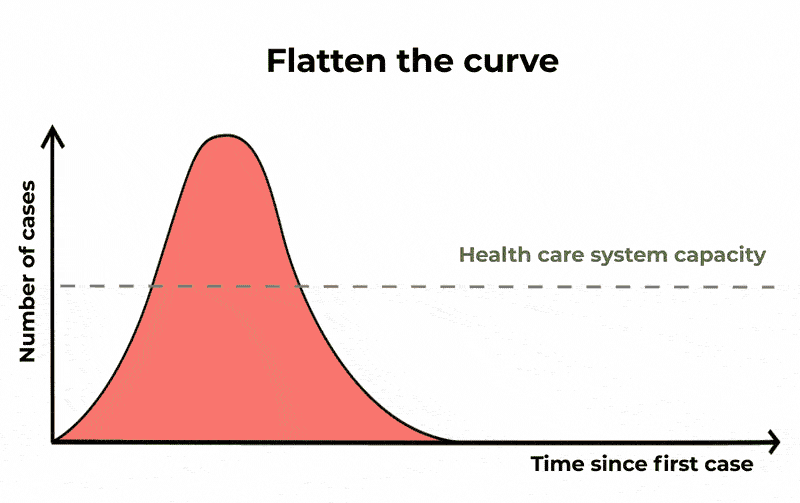A team of Waterloo computer science students have helped create a web-based data-gathering platform that has been promoted by the City of Montreal’s public health authority to its citizens in an effort to flatten the curve of COVID-19 cases in that city.
Known as Flatten.ca, the platform is gaining national attention. Launched at the end of March, participating students volunteer their time to help track and monitor COVID-19 outbreaks across the country. The app both increases awareness of COVID-19 and helps to flatten the curve — adoption of community-isolation measures that keep the daily number of disease cases at a manageable level for medical providers. The French version of the website, Aplatir.ca, has been translated by the City of Montreal and promoted to its Francophone residences.

Flattening the curve is another way of saying slowing the spread. The epidemic is lengthened, but we reduce the number of severe cases that need medical intervention, lowering the burden on our healthcare system. Animation from The Conversation, CC BY ND.
The result of a multi-institutional collaboration between the University of Waterloo, University of Toronto, McMaster University and the University of New Brunswick, Flatten.ca was developed by students during their unexpected time off because of COVID-19.
In less than two weeks, more than 337,000 people have visited the self-reporting tool to answer questions about whether they’re experiencing COVID-19 symptoms, have travelled outside of Canada in the last 14 days, if they’re immunocompromised or over the age of 60.
Flatten also collaborates with health authorities across Canada to record confirmed cases. The team then collects and sanitizes the data so that it can be analyzed and outputted into heat maps showing confirmed and potential COVID-19 cases and the number of vulnerable people in various locations.

“We’ve started with Montreal but will be moving to other municipal governments and hopefully provinces,” Surya Krishnan said, who leads Flatten’s map development and operations team. “Some hospitals are also using this as a tool to help determine where potential sick patients are coming from and the possible number.”

“We just wanted to put our technical skills to good use during this time,” Yifei Zhang said.
“It’s been great working together with everybody trying to build a platform that will be useful for Canadians across the country.”

“Right now, we are just working to improve the platform to make it more accessible for people across Canada,” Ivan Nesterovic said. “This includes text functionality, improving the user experience of our website and showing more statistics.”

“At first, I was very overwhelmed when they asked me to be part of the team,” Miraal Kabir revealed. “I didn’t believe as a first-year student I had the skills to contribute. But I was actually really amazed that just based on what we’ve learned in first year we could already make a difference.”
The students are not yet sure what they will do with the website following the containment of the coronavirus outbreak, but hope the huge dataset they’re collecting will help to support research into preventing future pandemics and controlling future diseases.
Today, Flatten is an incorporated non-profit organization with 28 members, including advisors such as Geoffrey Hinton and has Google Cloud, ESRI, The Vector Institute and CIFAR as sponsors.
Waterloo’s Faculty of Mathematics and Faculty of Engineering students working on Flatten
- Owen Brake
- Ethan Chen
- Samuel Hao
- Miraal Kabir
- Surya Krishnan
- Ivan Nesterovic
- Emily Tao
- William Wen
- Eric Zhai
- Yifei Zhang